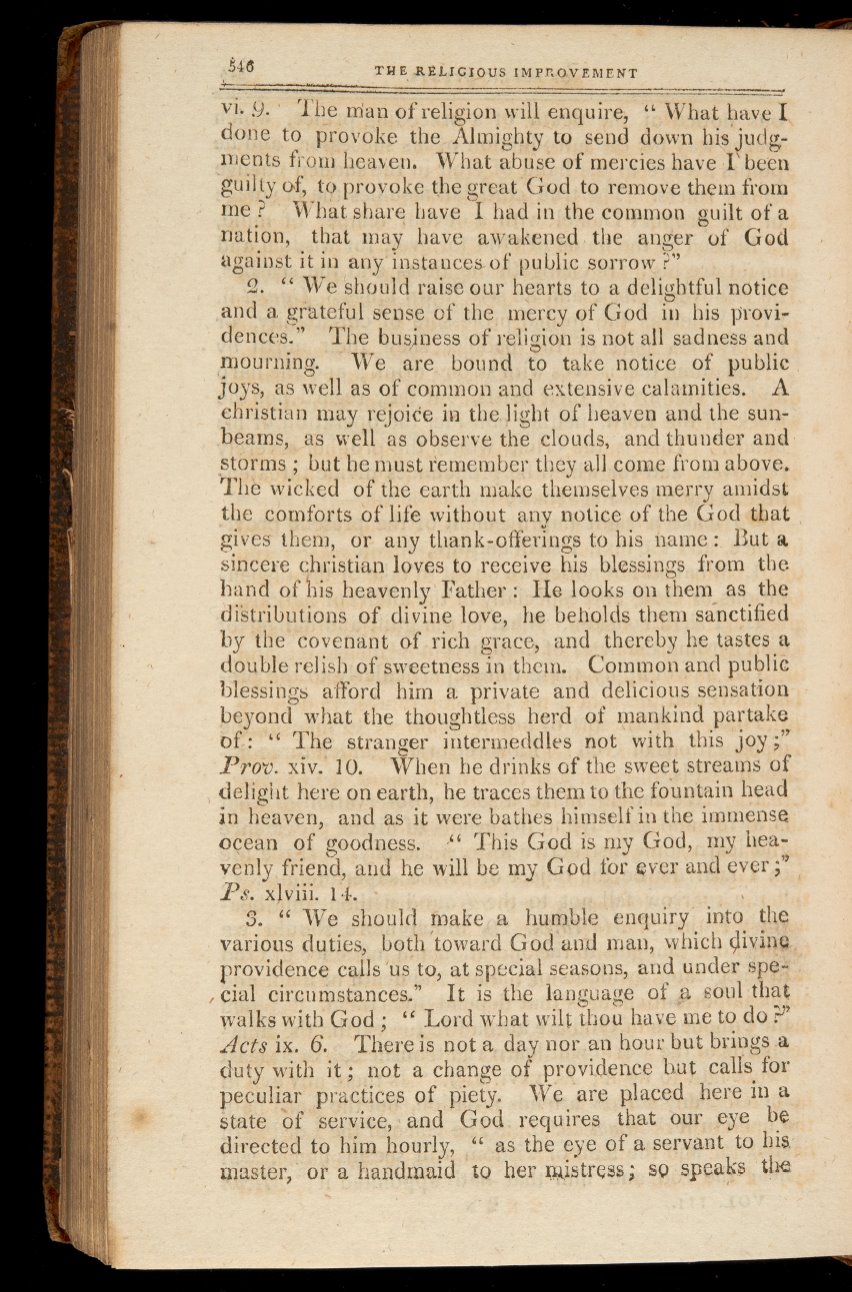

TIdE.RELTCTOUs
IMPRO.VENIENT
vi.
9.
The
man
of
religion
will
enquire,
"
What
have
I
done
to
provoke the.
Almighty
to send down
his
judg,-
ments
from heaven.
What
abuse
of
mercies have
I
been
guilty
of,
to
provoke
the
great'God
to
remove
them from
me
?
What
share
have
I
had
in
the
common
guilt
of
a
nation, that may
have
awakened
the
anger of
God
against it
in
any'instances
-of
public
sorrow
?"
2.
"
We should raise
our
hearts
to a
delightful notice
and a
grateful
sense
of
the
mercy
of God
in his
provi-
dences."
The
business
of
religion
is
not
all
sadness and
mourning. We are bound
to
take notice
of
public
Joys, as well as
of
common and extensive calamities. A
christian
may
rejoice
in
the
light
of
heaven and the sun-
beams,
as
well as
observe the clouds, and
thunder
and
storms
;
but
he
must remember
they
all
come from
above.
Thè
wicked
of
the
earth
make themselves merry amidst
the
comforts
of
life
without
any
notice of
the
God
that
gives
then,
or
any
thank
offerings to
his
name
:.
But
a
sincere christian loves
to
receive
his
blessings
from
the
hand
of
his
heavenly Father
:
He
looks
on them as
the
distributions
of
divine
love, he
beholds them sanctified
by the
covenant of
rich grace, and thereby
he tastes
a
double
relish
of
sweetness
in
them.
Common and public
blessings
afford him
a private and delicious sensation
beyond what the thoughtless herd of mankind
partake
Of
The stranger intermeddles not
with this
joy
;"
Prov.
xiv.
10.
When
he
drinks
of
the sweet
streams
of
delight
here
on
earth,
he
traces them
to the
fountain head
in
heaven,
and
as
it
were
bathes
himself
in
the immense
ocean
of
goodness.
"
This God
is
my
God,
my
hea-
venly friend, and
he
will be
my.
God
for
ever
and ever
;"
Ps.
xlviii.
14.
3.
"
We
should make a humble enquiry
into the
various
duties,
both
toward
God
and man,
which divine
providence
calls
'us
to,
at
special seasons,
and under
spe-
,
cial circumstances."
It
is
the language
of
á
soul
that
walks
with
God
"
Lord what
wilt
thou
have me to do
s'
Acts
ix.
6.
There
is
not
a day
nor
an hour
but
brings
.a
duty
with
it
not
a
change
of
providence
but
calls for
peculiar
practices
of
piety.
We
are
placed here
in
a
state
of
service,
'
and
God requires that
our
eye
be
directed
to
him hourly,
"
as
the
eye
of
a servant
to
his,
master,. or a handmaid
to
her mistress;
so
speaks the

















